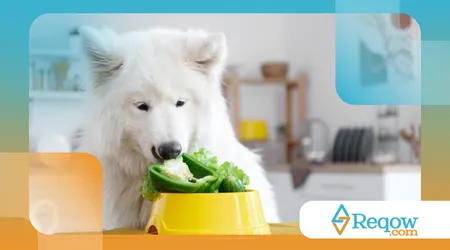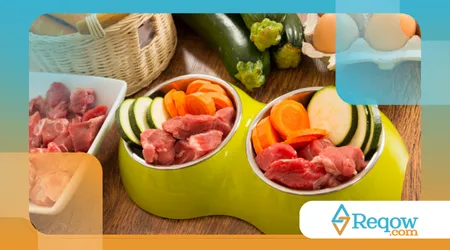Natural feeding: pros, cons and necessary care

In a world of ultra-processed foods and instant solutions, the search for natural feeding emerges as a beacon of hope.
Advertisements
More than just a trend, this philosophy of life represents a reconnection with our biological essence.
However, is it really the answer to all ills? Let's dive into the pros, cons, and essential precautions of this journey.
What really is Natural Food?
Well, it's not a strict diet, but rather a lifestyle that prioritizes foods in their purest and most original state.
Minimally processed fruits, vegetables, greens, grains, seeds, and lean proteins are the foundation. It's the wisdom of eating what the earth provides.
Advertisements
One point to note is that this approach does not completely exclude cooked foods.
The focus is on quality and minimal industrial intervention. The food must be recognizable, coming directly from nature.
The Benefits of a Purer Diet
Adopting a diet rich in natural foods brings a number of undeniable health benefits. The first and most noticeable of these is improved digestion.
Thus, the high fiber concentration facilitates intestinal transit and promotes microbiota health. Furthermore, the abundance of vitamins and minerals strengthens the immune system.
Eating whole foods helps maintain a healthy weight. They promote greater satiety, reducing the need for unhealthy snacks.
Read more: How to Prevent and Treat Diaper Rash in Active Dogs
Another crucial benefit is the reduced risk of chronic diseases. The absence of additives, sugars, and trans fats combats inflammation.
Reduction of chronic diseases
A study published in the journal The Lancet Planetary Health in 2021 showed a strong correlation.
In this sense, research indicated that plant-based diets reduce overall mortality by up to 25%.
This is compared to diets rich in meat and ultra-processed foods. natural feeding is therefore a powerful preventive tool.
It's as if the body is running on the fuel it was designed for.
A gasoline car doesn't run well on diesel, does it? Likewise, our bodies respond better to real nutrients.
This approach can also improve mental and cognitive health. Modern science shows a direct link between the gut and the brain.

The Challenges and Necessary Care
Otherwise, despite all its merits, the natural feeding is not without its challenges. One of the biggest is the issue of time and planning.
Cooking from scratch requires more dedication than buying something ready-made. This routine can be difficult for those with busy lives.
Find out more: Step by step guide to deep cleaning your dog's toys
Cost can also be a deterrent for some. Organic or small-scale food tends to be more expensive.
Lack of variety can be another problem for beginners. Monotony can lead to diet abandonment.
Risks of lack of information
On the other hand, a lack of professional guidance can lead to nutritional deficiencies. The belief that "anything natural is good" can be dangerous.
For example, a poorly planned vegan diet can lead to a deficiency in vitamin B12. This essential nutrient is found primarily in animal products.
Another common mistake is cross-contamination. One example is not properly sanitizing fruits and vegetables.
It's vital to wash food properly, especially when eating raw. Eating vegetables without proper hygiene can cause gastrointestinal problems.
How to Make the Transition Consciously
To adopt the natural feeding In a sustainable way, the key word is balance. It doesn't have to be all or nothing at once.
So start with small changes, like swapping white bread for whole-wheat bread and adding more vegetables to your main course.
Look how interesting: How to train your dog to walk without pulling on the leash
Meal planning is your best friend on this journey. Prepare healthy snacks in advance.
Invest in a weekly market to ensure fresh produce. Also consider local consumer groups.
It's crucial to seek guidance from a nutritionist. This professional will help you create a safe eating plan.
Comparison Chart: Natural vs. Ultra-Processed Food
| Feature | Natural Food (Ex: Apple) | Ultra-processed food (e.g., stuffed biscuits) |
| Ingredients | One (apple) | Many (flour, sugar, hydrogenated fat, dyes) |
| Nutrients | Vitamins, fiber, minerals | Empty calories, trans fat, sodium |
| Shelf Time | Short (perishable) | Long (preservatives) |
| Satiety Level | High (fiber) | Low (sugars) |

Natural Food in the Current Scenario
We are living in a time of growing awareness. More people are seeking to understand the origins of their food.
Therefore, the demand for organic and small-scale products grows every year, demonstrating the strength of this trend.
Have you ever stopped to think about where what you eat comes from? natural feeding invites us to this reflection.
It's an act of caring not only for the body, but also for the environment. It encourages sustainable agriculture and waste reduction.
One natural feeding and conscious action brings us closer to a healthier future. It positively impacts everyone's lives.
A Choice for Life
THE natural feeding It's not just a passing fad; it's a return to ancestral wisdom. It's the decision to nourish the body with the best nature has to offer.
It offers numerous benefits, from disease prevention to improved overall well-being. However, it requires caution and information to avoid pitfalls.
Therefore, the key is moderation and knowledge. Make the transition gradually and with professional guidance.
Remember: the path to a healthier life starts at the table. The choice is in your hands.
Frequently Asked Questions
1. What is an ultra-processed food?
These are food products created by the industry, with many ingredients and little or no natural food.
2. Is natural food always more expensive?
Not necessarily. With planning, you can save money on grocery shopping and reduce your consumption of expensive products.
3. Do I need to become vegan to have a natural diet?
Absolutely not. The focus is on minimally processed foods, which may include animal proteins.
4. Is the gluten-free diet a type of natural diet?
No, the gluten-free diet is specifically for people with gluten sensitivity or celiac disease. Natural foods can contain gluten.
5. What are “whole foods”?
These are foods that have not had their original structure altered, such as grains and cereals that maintain their bran.
Other sources: Necessary care with food
